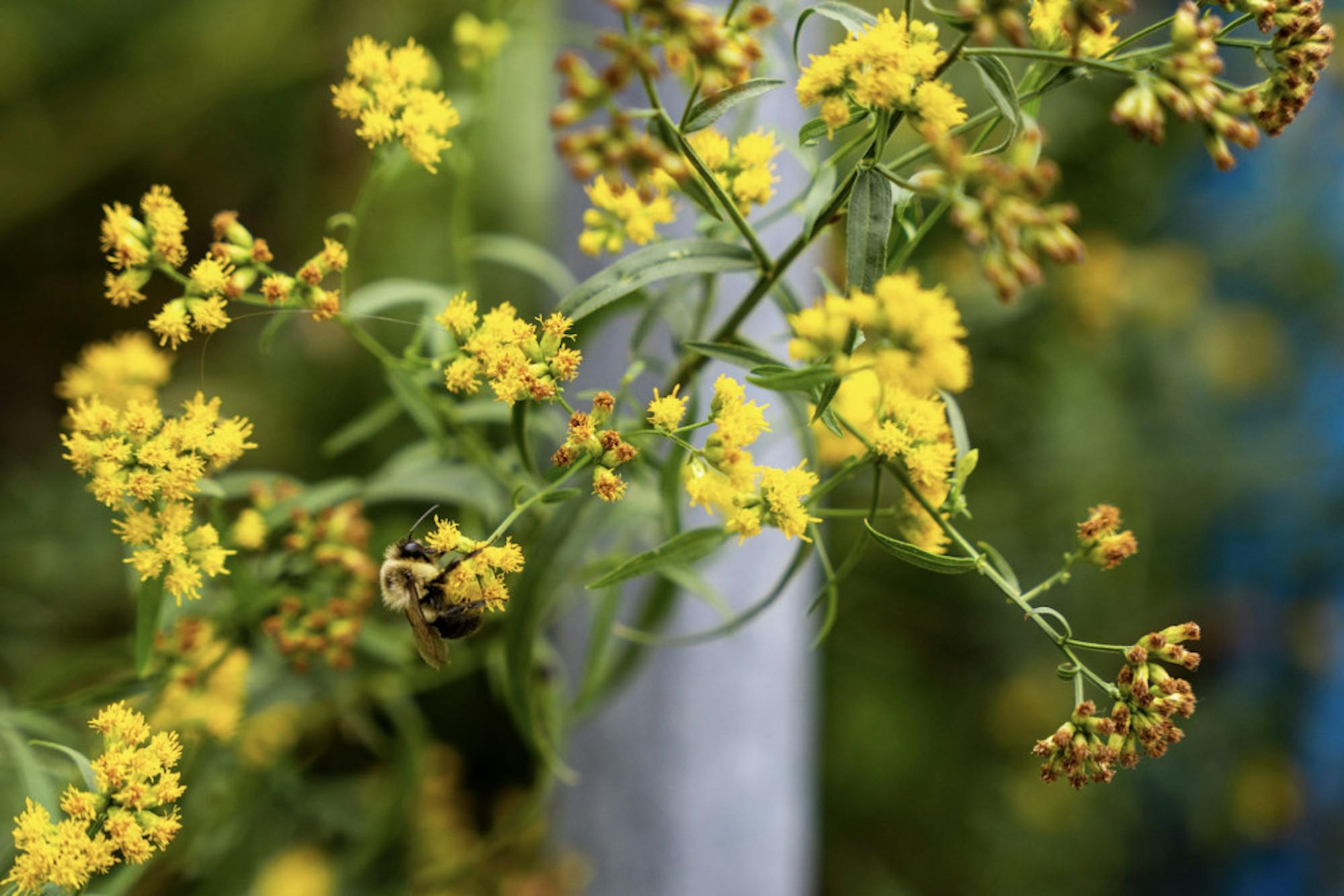The City of Somerville announced that they will establish an advisory committee to create a Pollinator Action Plan. The plan aims to protect pollinator species and preserve the health of the local urban ecosystem.
The Somerville Pollinator Action Plan comes as a response to a decrease in pollinator populations throughout New England and worldwide, resulting from pesticide use, habitat loss and climate change. The SPAP will be the first of its kind to be put into effect in a city as densely populated as Somerville.
Cortney Kirk, a senior planner in the Somerville Public Space and Urban Forestry Division, touched upon the issues this plan will address in an email to the Daily.
“[The SPAP will] develop clear, site-specific and replicable interventions that the City of Somerville and its residents can implement on both public and private lands to ensure real improvement in the availability of local pollinator habitat,” Kirk wrote.
Nick Dorian, a PhD candidate in the Tufts biology department, spoke about the diversity of different pollinators and how they are critical for food security, as many plant species rely on insect pollination to thrive.
“Lots of different insects pollinate; bees are some of the best-known pollinators, but also butterflies, hoverflies, beetles, wasps. Any insect that visits a flower and can carry pollen on its body is capable of pollinating,” Dorian said. “If you've had coffee today or gone apple picking this fall, or are planning on carving a pumpkin, you have to thank a bee, because all of those … result from the pollination of flowering plants.”
Dorian also noted that pollinators are essential to maintaining a healthy ecosystem.
“I like to think of pollinators as the backbone of the ecosystem,” Dorian said. “As they visit flowers, like wildflowers and trees, they help those plants reproduce, and in turn, the fruits that those plants produce go on to feed other animals, which go on to feed other animals and so forth.”
In addition, the SPAP will focus on better understanding and supporting both Somerville-specific and regional pollinators in the context of Somerville’s urban open spaces. This includes educating both public servants and city residents on the importance of healthy pollinators to an urban ecosystem, while also highlighting the ways that residents can help support the cause.
Dorian noted that efforts by both city officials and city residents are required to protect pollinators.
“In order for [Somerville] to be a great place for pollinators, I think there needs to be a coordinated effort between top-down actions by the City of Somerville … and bottom up actions by community members,” Dorian said. “This is because so much of the land in cities is privately owned, and [to] convert a large amount of urban land into habitat for insects, we need everybody to play their part.”
Beyond the SPAP, Somerville has also committed itself to helping protect pollinators through supporting other initiatives.
“Somerville has passed a Native Plant Ordinance, which requires certain percentages of native species to be planted on City land [and] passed a Tree Preservation ordinance, which limits the removal of healthy trees, many of which are essential food and shelter sources for pollinators,” Kirk wrote.
In addition, Somerville Mayor Katjana Ballantyne has previously signed the Mayor’s Monarch Pledge, a national initiative to address the declining populations of Monarch butterflies.
There have also been efforts on Tufts campus to protect the declining populations of pollinators. Many of these efforts have been spearheaded by the Tufts Pollinator Initiative, a team of Tufts faculty, graduate students and undergraduates that are involved with pollinator conservation.
Elizabeth Crone, an affiliate professor with the Tufts biology department and faculty advisor for TPI, explained how the initiative interacts with local communities to provide education and motivation for these conservation efforts.
“[The] TPI runs a range of outreach activities, including pollinator safaris that help people see bees and get used to the idea of being close to and appreciating insects, native plant and seed sales that help people make their own pollinator gardens, and general awareness events like sponsoring trivia nights at local taprooms,” Crone wrote in an email to the Daily.
Beyond working locally to help pollinator populations, members of the TPI are also involved in research concerning pollinator health.
“We (mostly, students and faculty in the Biology Department) also do research on the ways in which pollinators are affected by landscape structure, are important for pollination in wild plants, and ontribute to food security in a variety of systems, from the city of Somerville to natural meadows to farmlands in the Greater Boston area and coffee plantations in Costa Rica,” Crone wrote.






